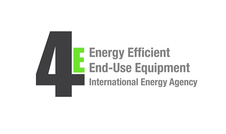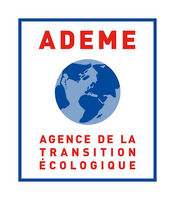Search eceee proceedings
Can energy social innovation improve energy justice and energy equality standards? An evaluation of ten European cases
Panel: 4. Monitoring and evaluation for a wise, just and inclusive transition
Authors:
Giuseppe Pellegrini-Masini, Norwegian University of Science and Technology NTNU, Norway
Patricia Albulescu, West University of Timisoara, Romania
Erica Löfström, Norwegian University of Science and Technology NTNU, Norway
Christian A. Klöckner, Norwegian University of Science and Technology NTNU, Norway
Abstract
A just energy transition requires due consideration of the potentially negative social implications that vulnerable groups might suffer in the process of transitioning from fossil fuels to renewable energy sources in European societies.
In order to counterbalance these possible negative outcomes, innovative policy schemes delivering simultaneously social and environmental co-benefits could be devised to favour a locally inclusive transition.
The H2020 SMARTEES project (2018–2021) has researched energy social innovations (SIs) across several case clusters regarding sustainable mobility, energy efficiency and energy poverty in neighbourhood regeneration, and renewable energy in islands.
The qualitative and quantitative data collected through semi-structured interviews, workshops and surveys were analysed in an energy justice perspective centred on the concept of energy equality.
We evaluated the interventions carried out in the SMARTEES SIs cases of Malmø, Stockholm, El Hierro, Samsø, Aberdeen, Timisoara, Vitoria-Gasteiz, Barcelona, Zurich and Groningen and while we found that SIs schemes appeared to increase energy justice and energy equality generally, some critical areas were identified, which led to outline several policy recommendations aiming at strengthening procedural, distributional and recognition justices through suitable energy SIs designs.
Regarding distributional justice, in the SMARTEES cases, financial resources played an important role in enabling the SI’s, in the sense that if the necessary public funding was lacking, the actions taken would not be possible, and the SI would not be started or implemented. Thus, appropriate financial solutions should consider a differentiated pattern of managing and consuming energy between low- and high-income households. In this regard, it is worth distinguishing between financial resources benefiting low-income households directly and indirectly; both are useful, but the former has a greater impact in addressing distributional injustices and should always be included in any social innovation project that wishes to address effectively such injustices. Hence improving distributional justice through SIs requires adequate public finances and carefully considering socioeconomically diverse target groups.
In terms of procedural equality, the social innovation cases considered show that substantial benefits can be accrued from the active participation of citizens in the social innovation, particularly when citizens are consulted or even involved in a co-creation process. A process of consultation and co-creation generates a better understanding of the aims of the SI and gives citizens the chance to make their voices heard, and their preferences stated. It allows promoters to understand underestimated barriers or neglected citizens’ needs to be addressed to develop a successful SI project. Therefore, strengthening procedural justice in SIs schemes necessitates local policies encouraging citizens’ early-stage consultation and co-creation and providing seed funding for fostering citizens-led SIs.
Recognition justice, or the fair representation of vulnerable groups, implies knowledge about the specificities of groups living in neighbourhoods. First of all, it requires acknowledging the needs, rights and experiences of vulnerable individuals, households and groups affected by energy decisions. Some particular social groups require greater amounts of energy to satisfy their basic needs than other groups, such as the elderly or disabled. Secondly, attention must be paid to which groups are “privileged” and which are “ignored”. Hence, improving recognition justice in energy SIs entails vulnerable groups having their needs recognised and accounted for and, if necessary, adopting targeted approaches of engagement that are mindful of cultural and social differences.
Downloads
Download this presentation as pdf: 4-181-22_Pellegrini_pres.pdf
Panels of
1. Dynamics of consumption: less is more?
2. Efficiency and beyond: innovative energy demand policies
3. Policy, finance and governance
4. Monitoring and evaluation for a wise, just and inclusive transition
5. Towards sustainable and resilient communities
6. Energy-efficient and low-carbon mobility for all
7. Policies and programmes for better buildings
8. Innovations in products, systems and building technologies



























